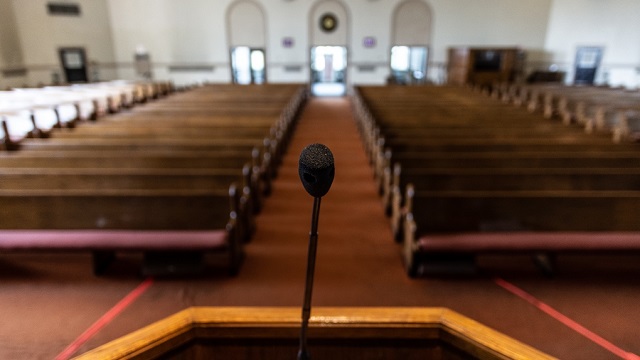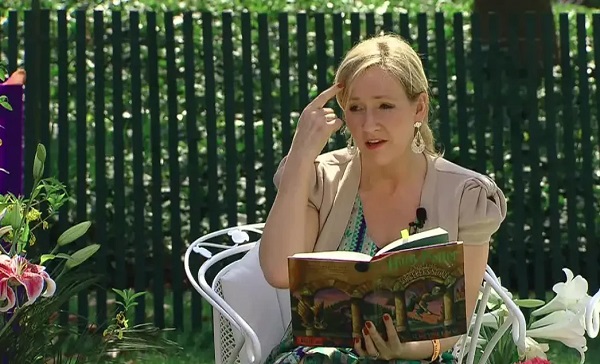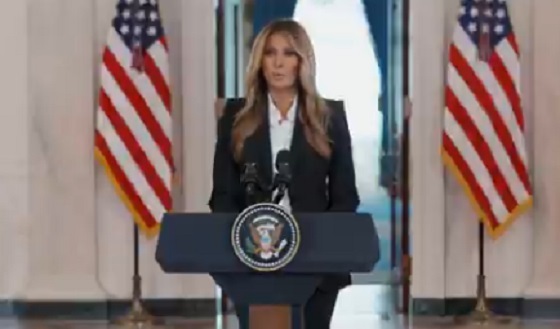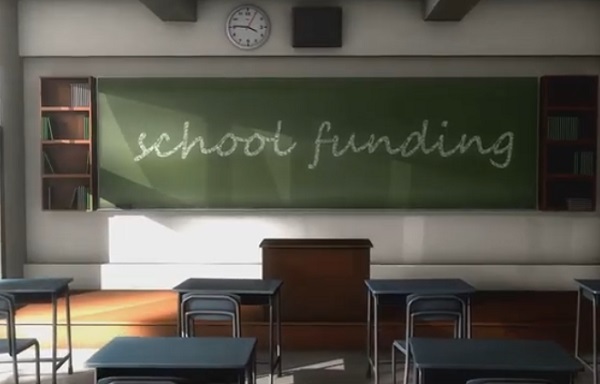Censorship Industrial Complex
“Minority Report”: The Sequel. A warning to the Canadian Church

From the Frontier Centre for Pubic Policy
In the 2002 futuristic movie, “Minority Report,” viewers are introduced to a ground-breaking technology that allows law enforcement to preview a crime before it is committed. Then this determination becomes the basis for the arrest and the sentencing of the “pre-crime” perpetrator.
In a case of life imitating art, on February 26, the Canadian government tabled legislation containing provisions that are eerily like the plot imagined in Tom Cruise’s blockbuster.
The proposed legislation should be of great concern to churches and pastors who may face unprecedented legal exposure if it is passed.
Bill C-63, the Online Harms Act, seeks to “promote online safety.” The Act endeavours, in part, to protect children from online sexual exploitation and requires the mandatory reporting of online child pornography by internet providers. So far, so good.
But the proverbial devil is lurking in the details of the provisions pertaining to online hate speech, which are simply breathtaking.
The Act represents what many consider to be the most dangerous assault on free speech this country has ever seen, prompting Canadian novelist, Margaret Atwood, to refer to the proposed legislation as “Orwellian.”
This bill would not only have a glacial effect on free speech, but it would also trigger an open season on religious organizations that do not align with mainstream dogma.
Here are some of the reasons behind this apocalyptic assessment of this piece of legislation.
The bill defines hate speech as speech that “is likely to foment detestation or vilification of an individual or group of individuals on the basis of a prohibited ground of discrimination.”
This definition is so vague, ambiguous, and far reaching that it could apply to any opinion that diverges from the government-sanctioned media narrative.
The responsibility of judging complaints would be lodged with the Human Rights Commission. This fact alone is deeply worrisome, as the threshold for deciding guilt is much lower in the Human Rights Tribunal than in a criminal court, where a person must be found guilty beyond a reasonable doubt.
Plaintiffs could file their complaints anonymously without incurring any legal costs. Defendants, on the other hand, would be bound to retain legal counsel at considerable expense to them.
Should they win their case, the plaintiffs stand to be awarded up to $20,000. The defendants could be imposed an additional fine of up to $50,000. Should a legal violation be considered to have been motivated by hate, the defendants could also face life imprisonment!
The incontrovertible proof that Bill C-63 is not about protecting children but strangling free speech resides in what is now ironically referred to as the “Minority Report” provision.
As unhinged as it sounds, the legislation states that if a member of the public has grounds to believe that someone is likely to engage in hateful speech, that person can appeal to a provincial judge who may then subject the defendant to house arrest and other restrictions.
Human nature being what it is, there is no telling the number of people who will be incentivized to file complaints knowing they have much to gain and nothing to lose.
Conservative churches would become instant targets in the tsunami of human rights violation initiatives that the proposed legislation would trigger.
In response, churches may decide to play it safe by restricting their services to in-person participation or by self-censuring.
While either choice would no doubt be welcome by a government that wants to silence those who hold “unacceptable views,” to quote Prime Minister Justin Trudeau, such restrictions would no doubt prove to be detrimental to the churches and the common good.
The proposed legislation is not about protecting children. It’s about unleashing the mob against those who would oppose an agenda that is already proving to be an existential threat to liberal society.
Bill C-63 is currently at the nexus of the fight to preserve our most fundamental freedoms, Canadian democracy, and the well-being of future generations.
Churches have a window of opportunity to voice their opposition to this appalling piece of legislation.
What can be done?
First, be informed. Videos posted by the Canadian Constitution Foundation are a great place to start.
Second, promote congregational awareness. Church leaders can no longer pretend that such issues are beyond the scope of their pulpit. To denounce injustice is indeed part and parcel of the church’s prophetic mandate.
Third, church members should contact their member of parliament to express their opposition to Bill C-63.
Canadian churches have historically chosen to remain on the far edges of the culture war currently raging in the Western world. But if Bill C-63 receives royal assent, these same churches may soon unwittingly find themselves in the middle of the very battlefield they so vigorously sought to avoid.
Pierre Gilbert is Associate Professor Emeritus at Canadian Mennonite University.
Aristotle Foundation
Efforts to halt Harry Potter event expose the absurdity of trans activism

The Vancouver Park Board hasn’t caved to the anti-J.K. Rowling activists, but their campaign shows a need for common sense
This November, Harry Potter is coming to Vancouver’s Stanley Park. And some people aren’t happy.
The park will host Harry Potter: A Forbidden Forest Experience, an immersive exhibit that’s been staged around the world, prompting outrage from the gay and trans community. Why? Because J.K. Rowling, the creative genius behind the Harry Potter franchise, has been deemed a heretic — a “transphobe” — for her publicly stated view that men are men and women are women.
Rowling’s journey into so-called heresy began almost six years ago when she dared to publicly support Maya Forstater, a British tax expert who lost her job for asserting on social media that transgender women remain men.
“Dress however you please,” Rowling posted on Twitter in 2019. “Sleep with any consenting adult who’ll have you. Live your best life in peace and security. But force women out of their jobs for stating that sex is real? #IStandWithMaya #ThisIsNotADrill.”
It seemed to me and many others a rather benign tweet. But it was enough to generate global outrage from the trans community and its supporters. Rowling’s books have been boycotted and burned, with even the actors who portrayed Harry Potter characters on screen — most notably Daniel Radcliffe, Emma Watson and Rupert Grint — turning against the author who made them famous.
And yet Rowling has stuck to her guns, defending women and their right to enjoy spaces free of biological males in shelters, prisons, sports and so on. And she has stood against the “gender-affirming care” model that transitions children; in an X post last December, she said, “There are no trans kids. No child is ‘born in the wrong body.’”
It is — or should be — fair game to debate Rowling’s views. But in the hyper-polarized world of transgenderism, debate isn’t permitted. Only cancellation will suffice. Hence the angry response to the Vancouver Park Board’s greenlighting of the “Forest Experience” exhibit.
Vancouver city councillors Lucy Maloney and Sean Orr have called for the park board to reverse its decision.
“The trans and two-spirit community have made their voices heard already about how upset they are that this is happening,” Maloney said. “J.K. Rowling’s actions against the trans community are so egregious that I think we need to look at changing our minds on this.”
Orr concurred. “This is a reputational risk for the park board right now,” he said. “If there’s a way we can get out of this, we should consider this.
Thus far, thankfully, most park board commissioners have stood their ground. The exhibit is scheduled to go ahead as planned.
It’s worth emphasizing that since Rowling began her public defence of biological reality, much has changed. In 2024, the final report of the United Kingdom’s Cass Review exposed the shocking lack of evidence for the “gender-affirming” model of care; this led to a ban on puberty blockers in that country. Multiple European jurisdictions have done the same, enacting safeguards around transitioning youth. Major sports organizations have begun formally excluding biological males from female competitions. And in April 2025, the British Supreme Court decreed that “woman” and “sex” refer to biological sex assigned at birth, not gender identity.
Suffice it to say that Rowling has been vindicated.
Yet, as shown by a report published last year by the Aristotle Foundation (which I co-authored), Canada is increasingly an outlier in doubling down on transgender ideology. The Canadian Medical Association, the Canadian Pediatric Society and the Canadian Psychological Association continue to endorse the “gender-affirming” model of care. Even Canada’s Gordon Guyatt, hailed as one of the “fathers” of evidence-based medicine, has been cowed into distancing himself from his own research, which laid bare the scant amount of evidence supporting “gender-affirming” care.
It’s hard to know what it will take to set Canada back on a path of common sense and scientific rationality. Some Potter-style magic, perhaps. Or failing that, a return to good old-fashioned tolerance for open discussion and an honest exchange of views.
Dr. J. Edward Les is a pediatrician in Calgary and a senior fellow at the Aristotle Foundation for Public Policy. Photo: WikiCommons
Censorship Industrial Complex
Winnipeg Universities Flunk The Free Speech Test

From the Frontier Centre for Public Policy
By Tom Flanagan
Frances Widdowson faced mob hostility for saying unmarked graves have yet to be proven
Dr. Frances Widdowson’s visit to Winnipeg on Sept. 25 and 26 should have been an opportunity for debate. Instead, the city’s universities endorsed a statement that undermines academic freedom.
Widdowson, a political scientist known for questioning official narratives about residential schools, came to meet students who wanted to ask about claims of “unmarked graves.” Those claims, which became national headlines in 2021 after ground-penetrating radar surveys at former school sites, remain unproven because no physical evidence of burials has been found.
For many Canadians, the claims of “unmarked graves” were a shocking revelation, given how widely the story was reported as a settled fact.
That context alone should have been enough to spark discussion. Instead, the University of Manitoba and the University of Winnipeg joined the Assembly of Manitoba Chiefs in issuing a statement that should embarrass both schools. At institutions dedicated to study and inquiry, the instinct should be to ask more questions, not to shut them down.
At first, the statement sounded reasonable. It said the universities did not “condone violence or threats to anyone’s safety.” But that did not stop Widdowson from being roughed up by a mob at the University of Winnipeg. It would be refreshing if the universities condemned mob violence with the same urgency they condemned a professor answering questions. Their silence sends its own message about which kind of behaviour is tolerated on campus.
The bigger problem is the statement’s claim that there is a single “truth” about residential schools, known to “survivors,” and that questioning it amounts to “denial.” In reality, 143 residential schools operated with federal support for more than a century. What happened varied widely from place to place and decade to decade.
That is a subject for historical research, grounded in evidence and debate, not pronouncements about capital-T “Truth” issued by communications offices. Canadians deserve to know that history is still being studied, not declared untouchable.
Worse still was the statement’s promise to “press the Government of Canada to enact legislation that makes residential school denialism a crime.” The Assembly of Manitoba Chiefs is free to say what it wants. But universities lending their names to a demand that historical inquiry be criminalized is beyond misguided; it is dangerous.
Criminalizing “denialism” would mean that even challenging details of the residential school record could be punishable by law. Canadians should think carefully before accepting laws that turn historical debate into a criminal offence.
The University of Chicago’s widely praised statement on academic freedom puts it well: “the University’s fundamental commitment is to the principle that debate or deliberation may not be suppressed because the ideas put forth are thought by some or even by most members of the University community to be offensive, unwise, immoral, or wrong-headed. It is for the individual members of the University community, not for the University as an institution, to make those judgments for themselves.” That principle should also guide Canadian universities. Academic freedom is not a luxury; it is the foundation of higher education.
Worst of all, these positions were not even issued in the names of presidents or academic leaders. They were issued under “media relations.” Imagine being a serious scholar or scientist at one of these universities and discovering that the media office had taken a political stance on your behalf.
I know how I would feel: undermined as a professional and silenced as a citizen.
Tom Flanagan is a professor emeritus of political science at the University of Calgary and a Fellow of the Royal Society of Canada. He is a senior fellow at the Frontier Centre for Public Policy and co-editor of the best-selling book Grave Error: How the Media Misled Us (and the Truth about Residential Schools).
-

 Business2 days ago
Business2 days agoThe Grocery Greed Myth
-

 Business2 days ago
Business2 days agoCarney government plans to muddy the fiscal waters in upcoming budget
-

 Business2 days ago
Business2 days agoTax filing announcement shows consultation was a sham
-

 Frontier Centre for Public Policy16 hours ago
Frontier Centre for Public Policy16 hours agoCanada’s Democracy Is Running On Fumes
-

 International9 hours ago
International9 hours agoMelania Trump quietly reunites children divided by Ukraine war
-

 Business17 hours ago
Business17 hours agoYour $350 Grocery Question: Gouging or Economics?
-

 Education15 hours ago
Education15 hours agoClassroom Size Isn’t The Real Issue
-

 Media16 hours ago
Media16 hours agoResponse to any budget sleight of hand will determine which audience media have decided to serve






